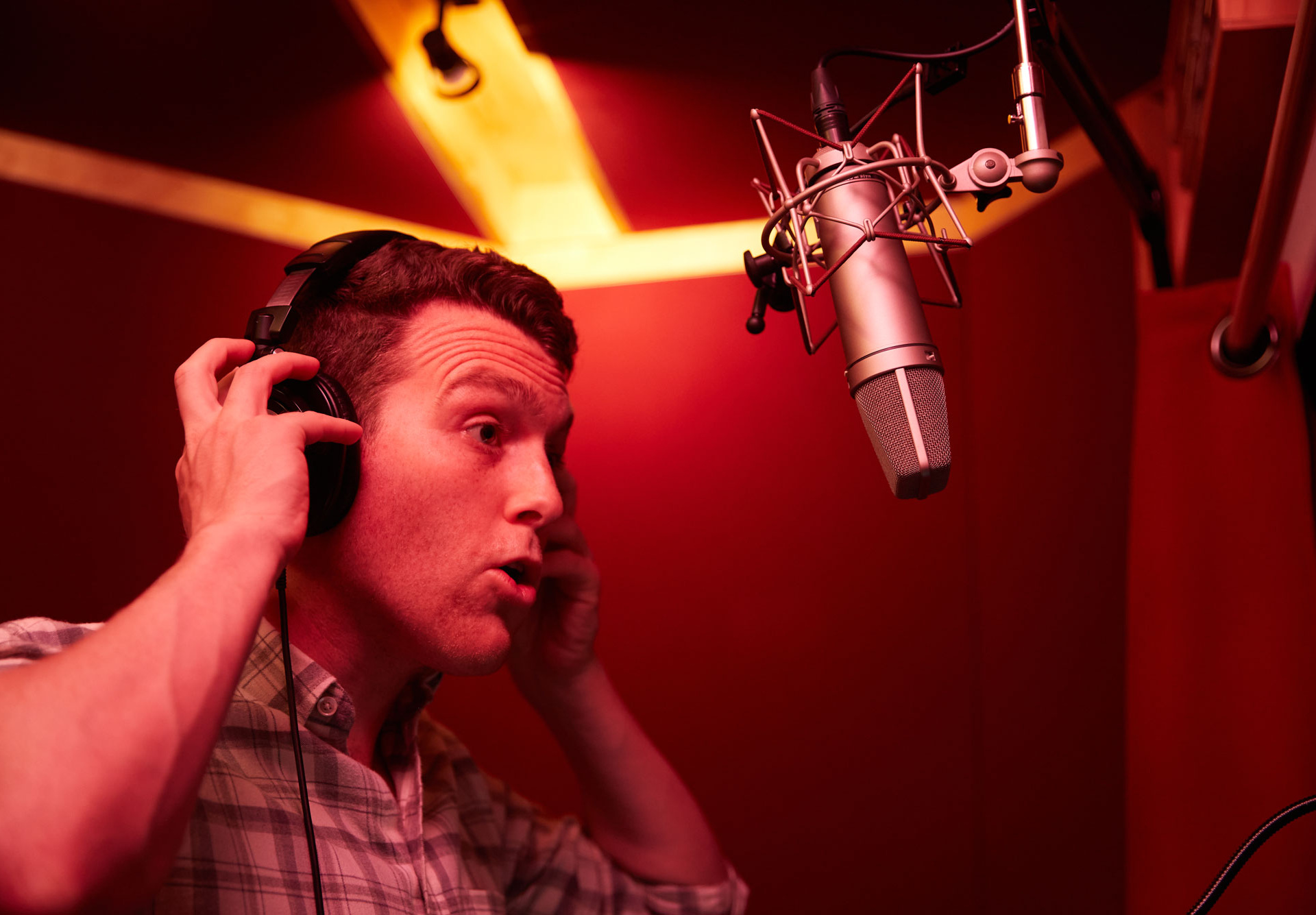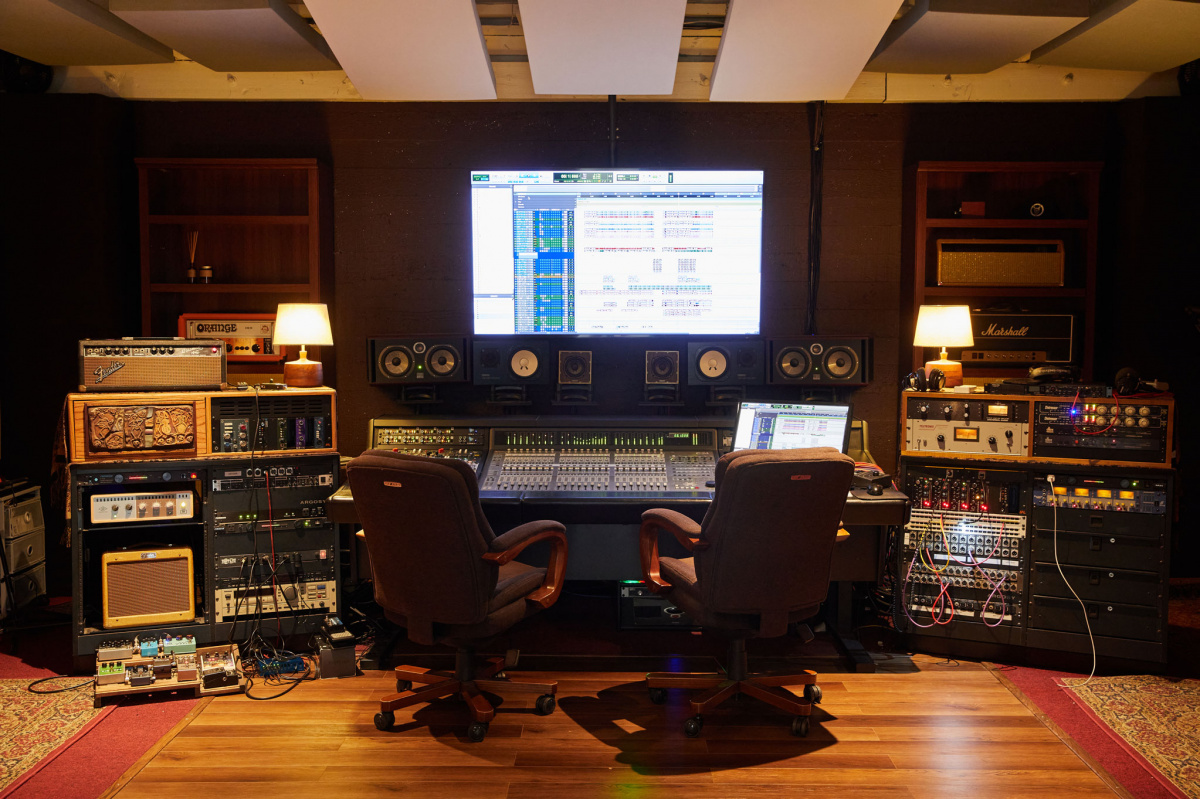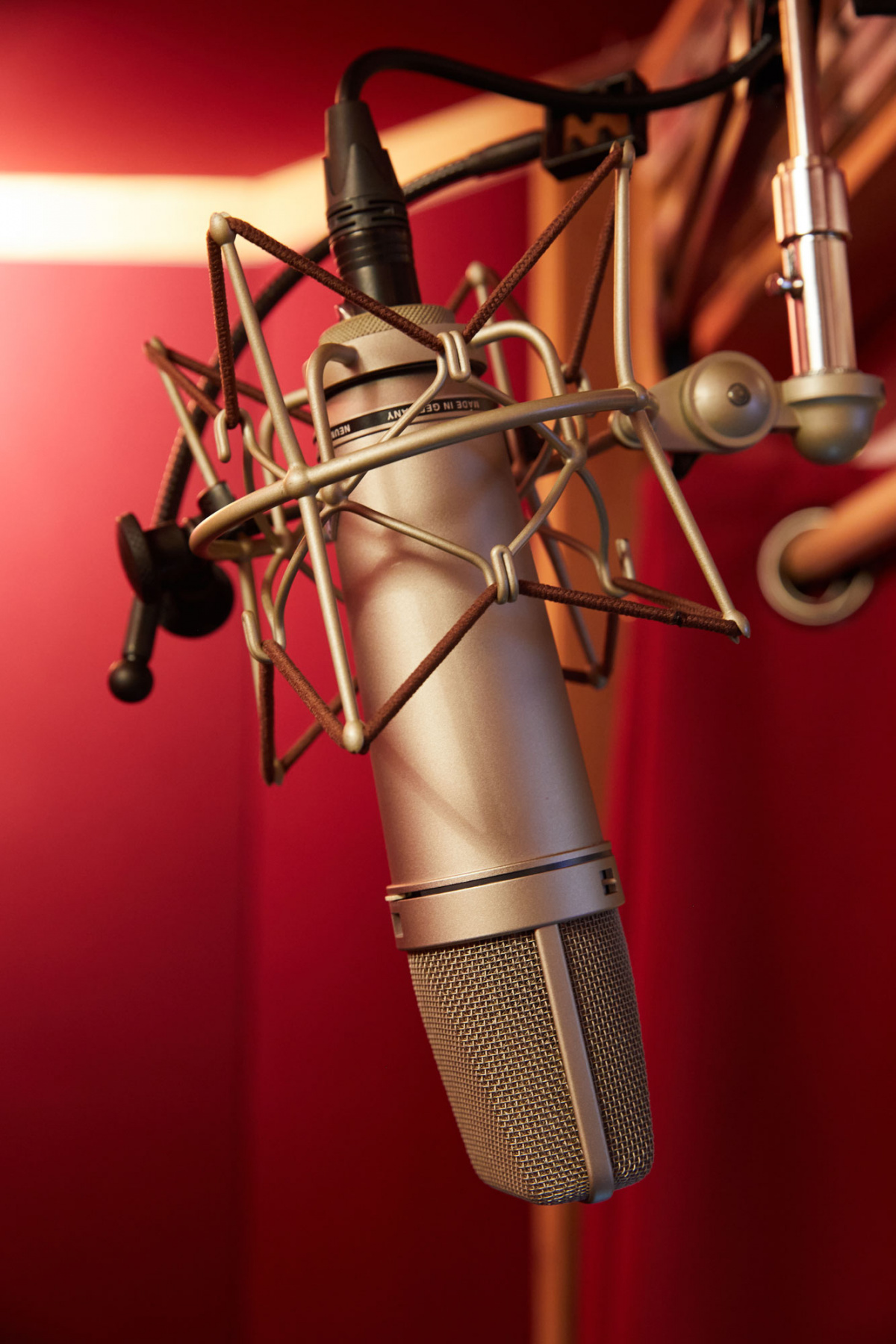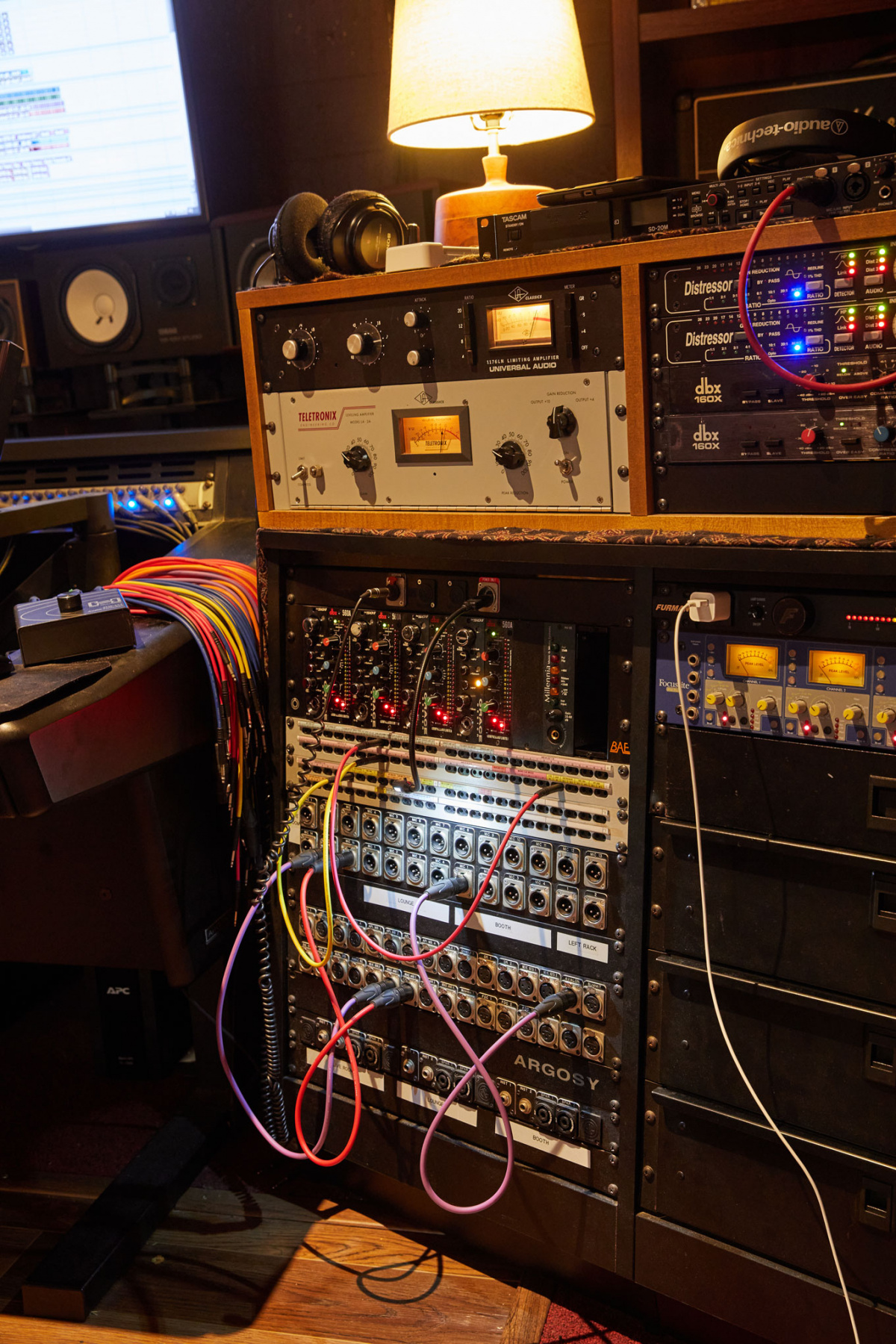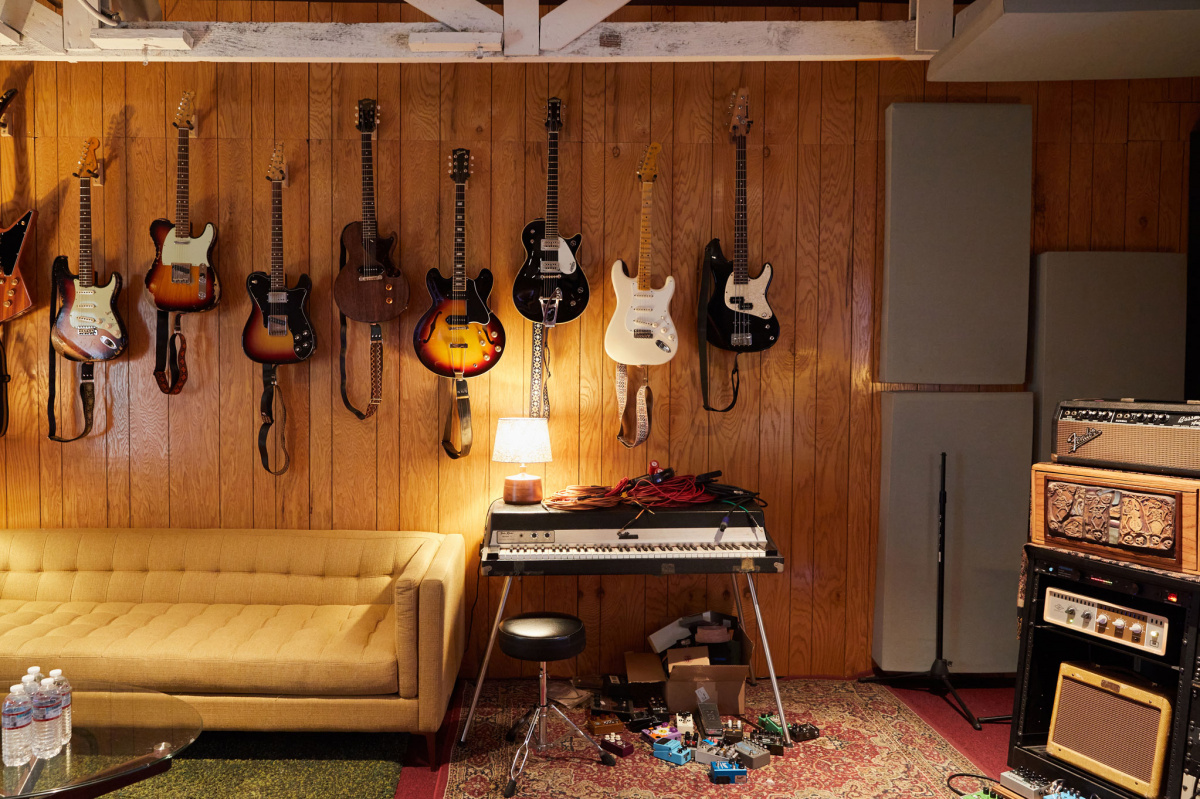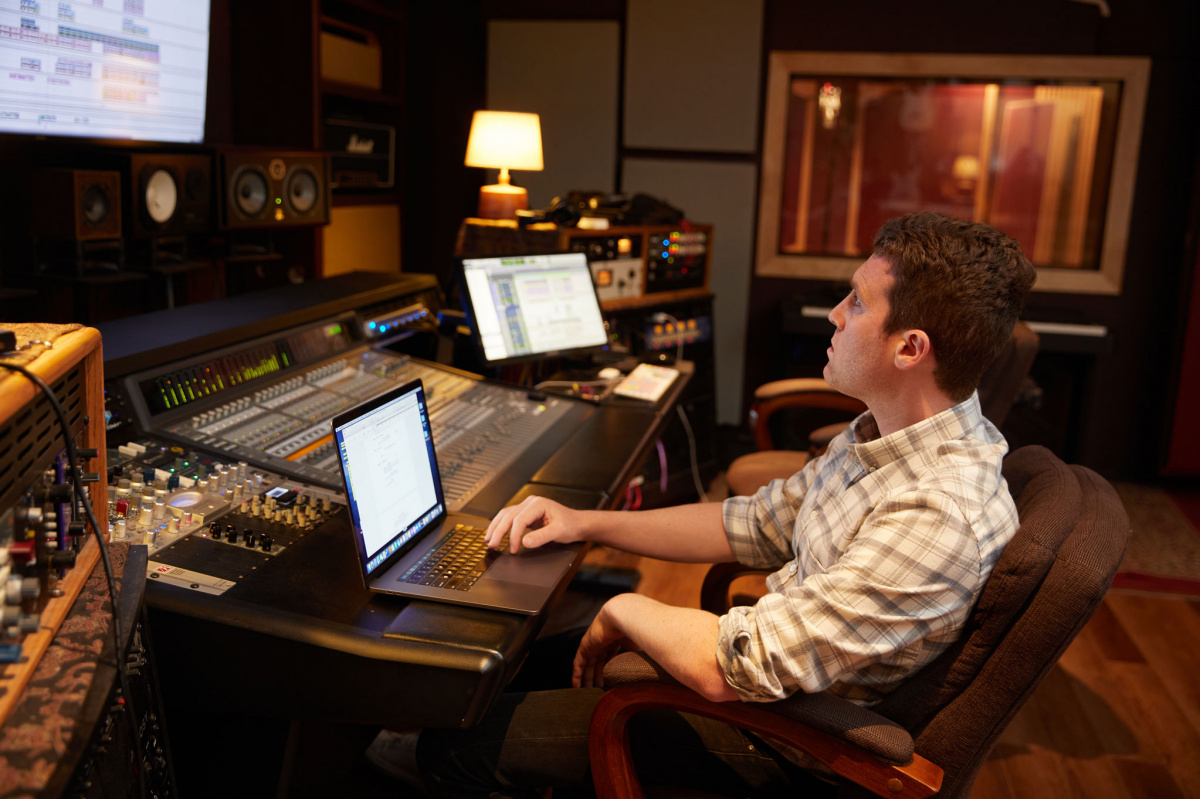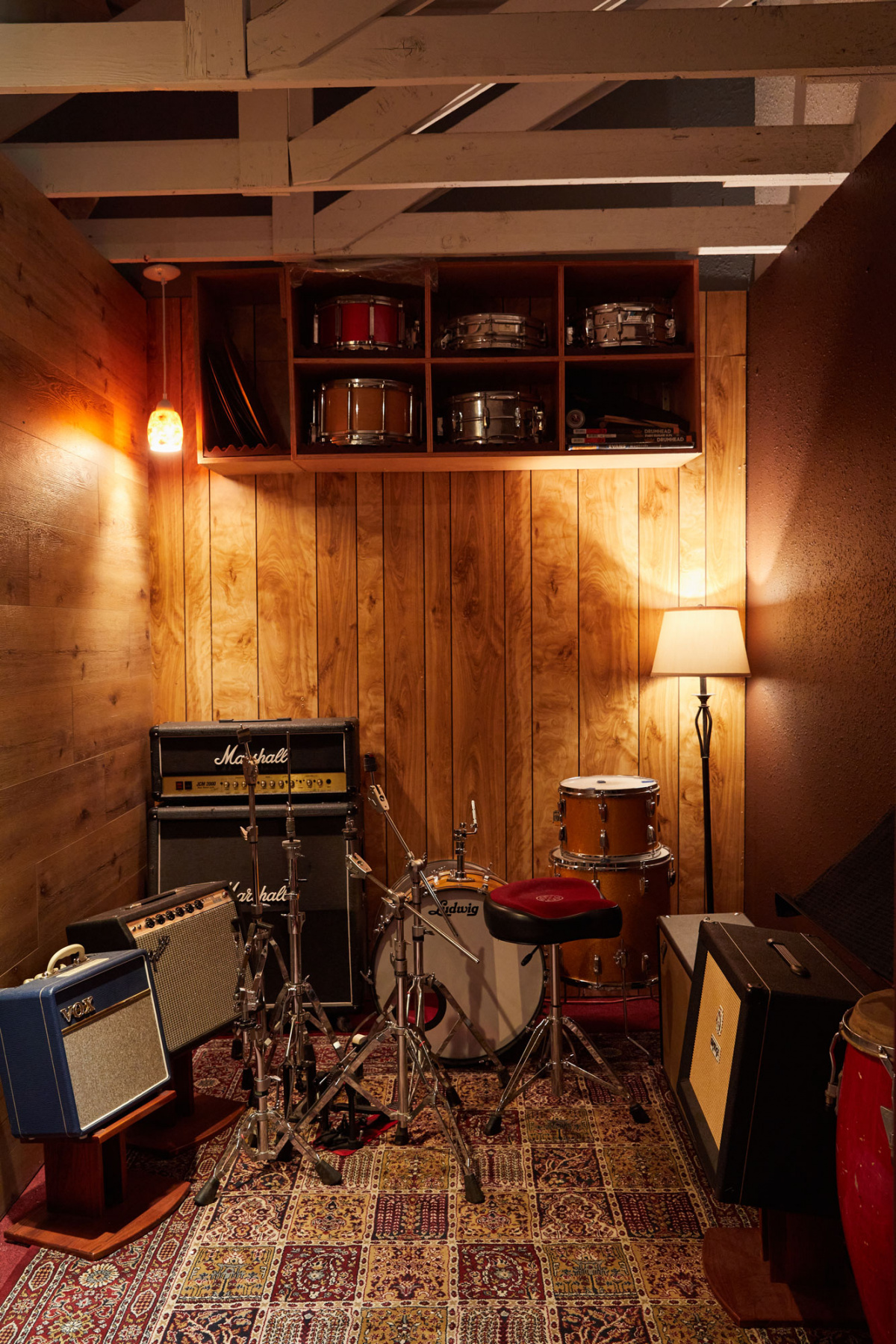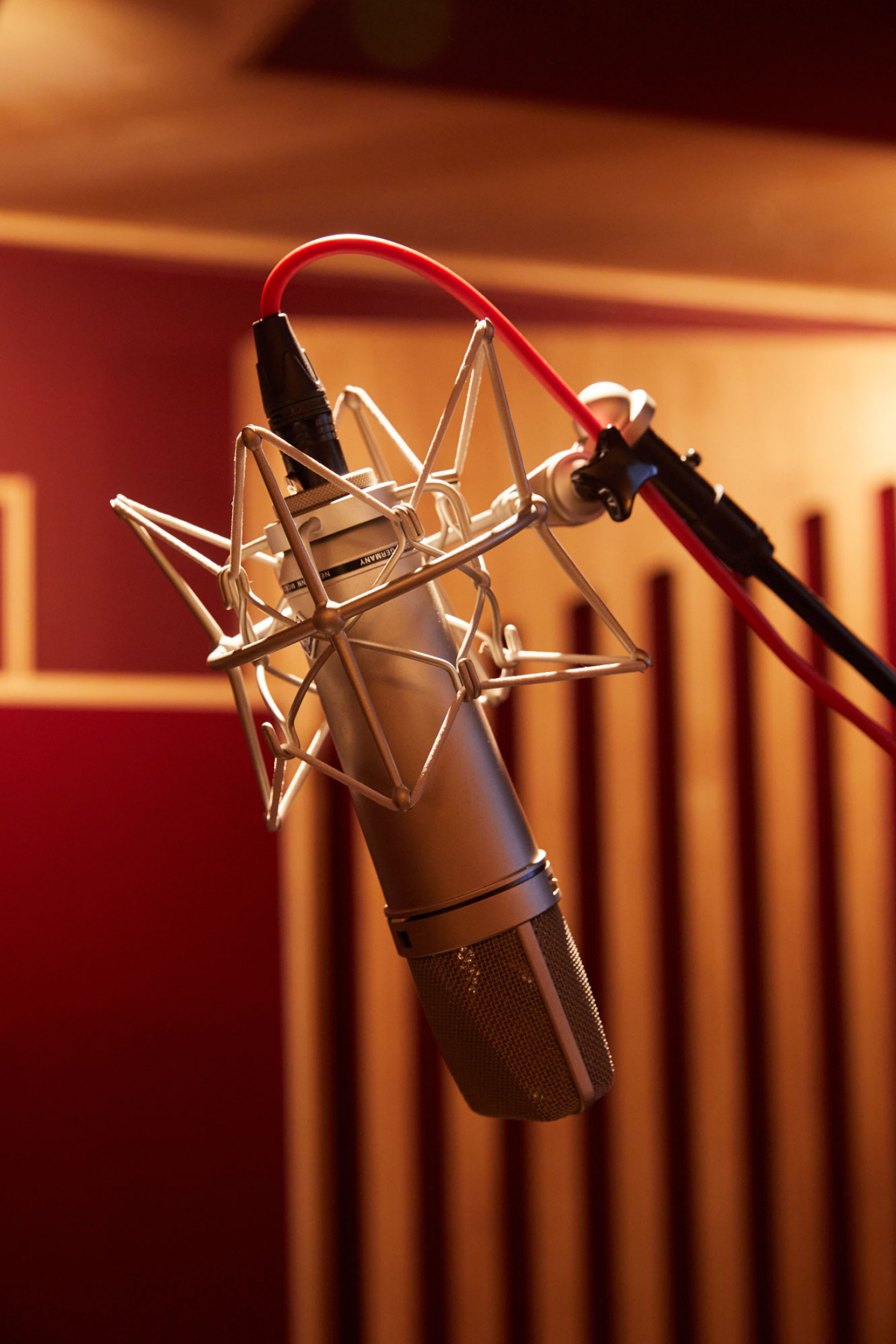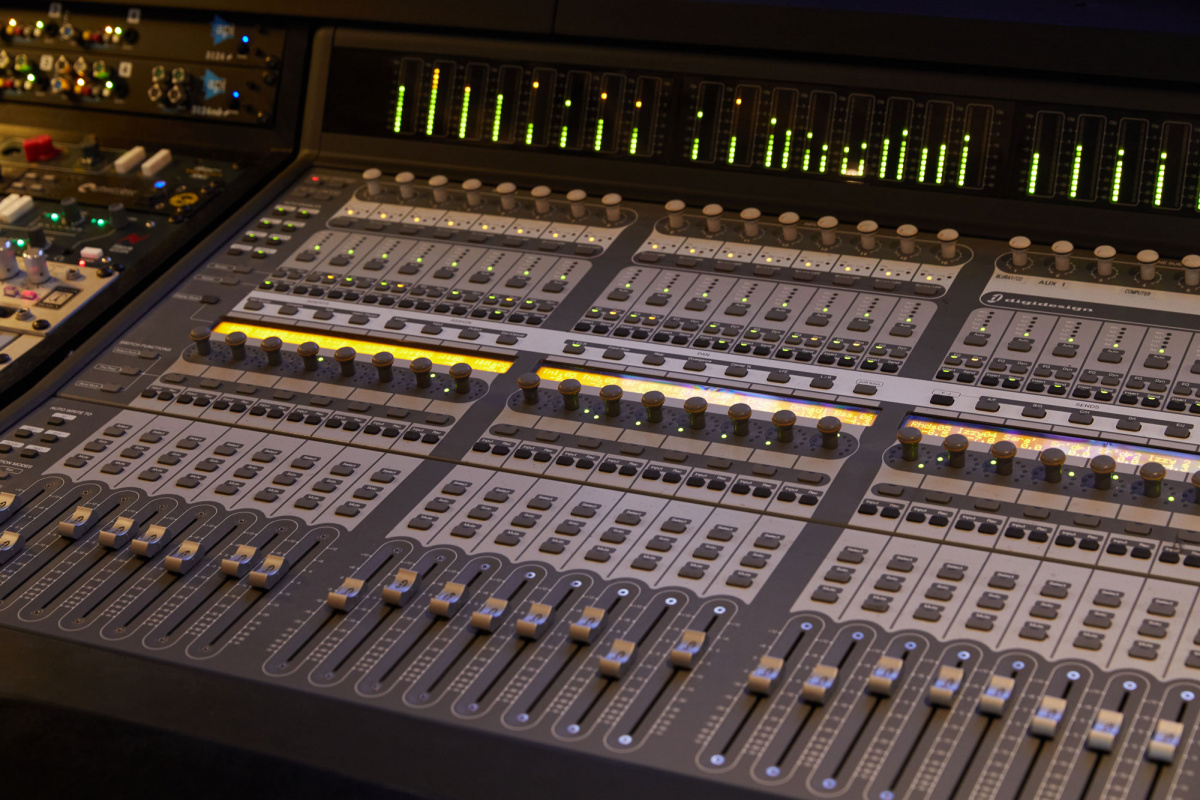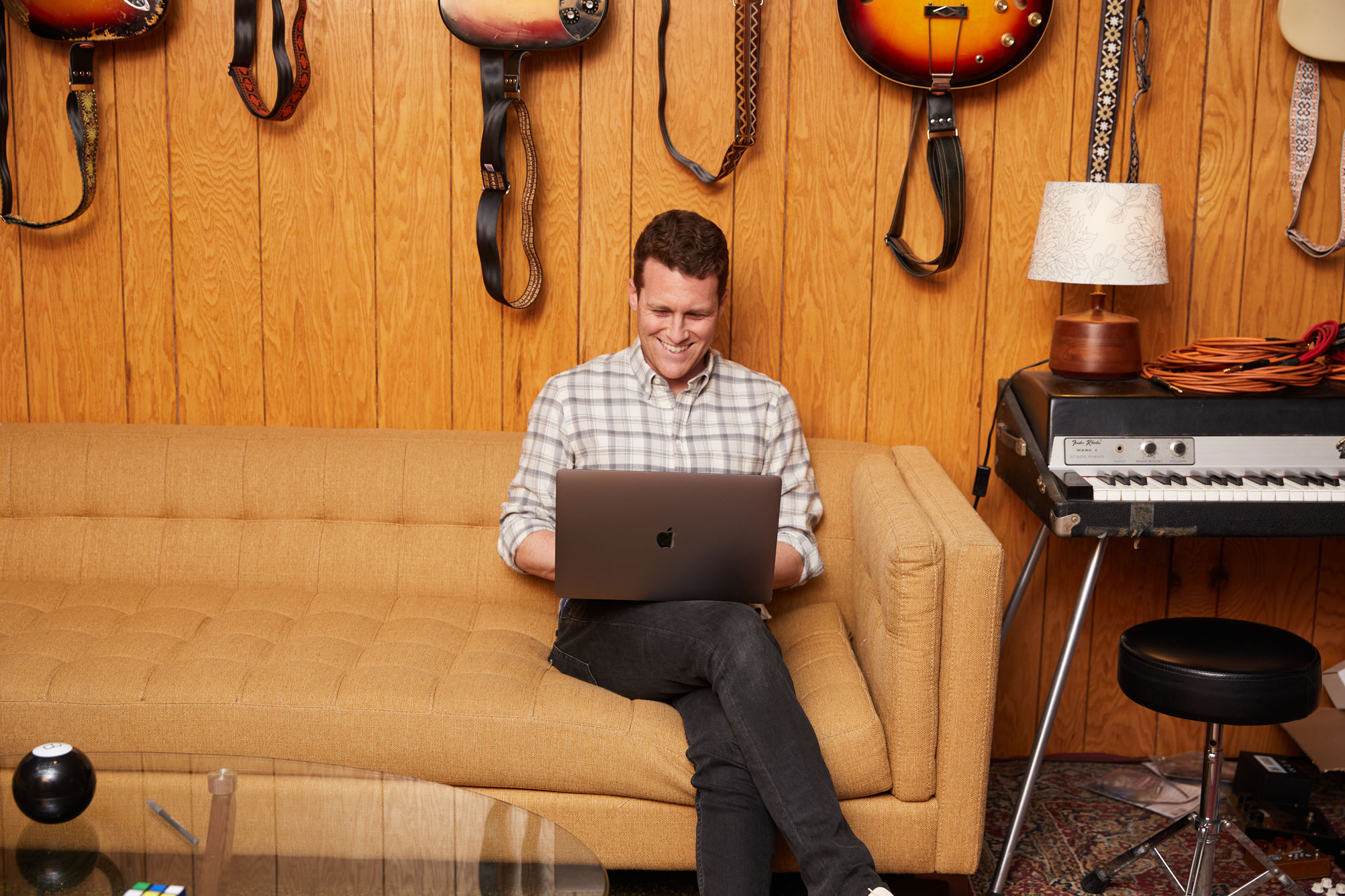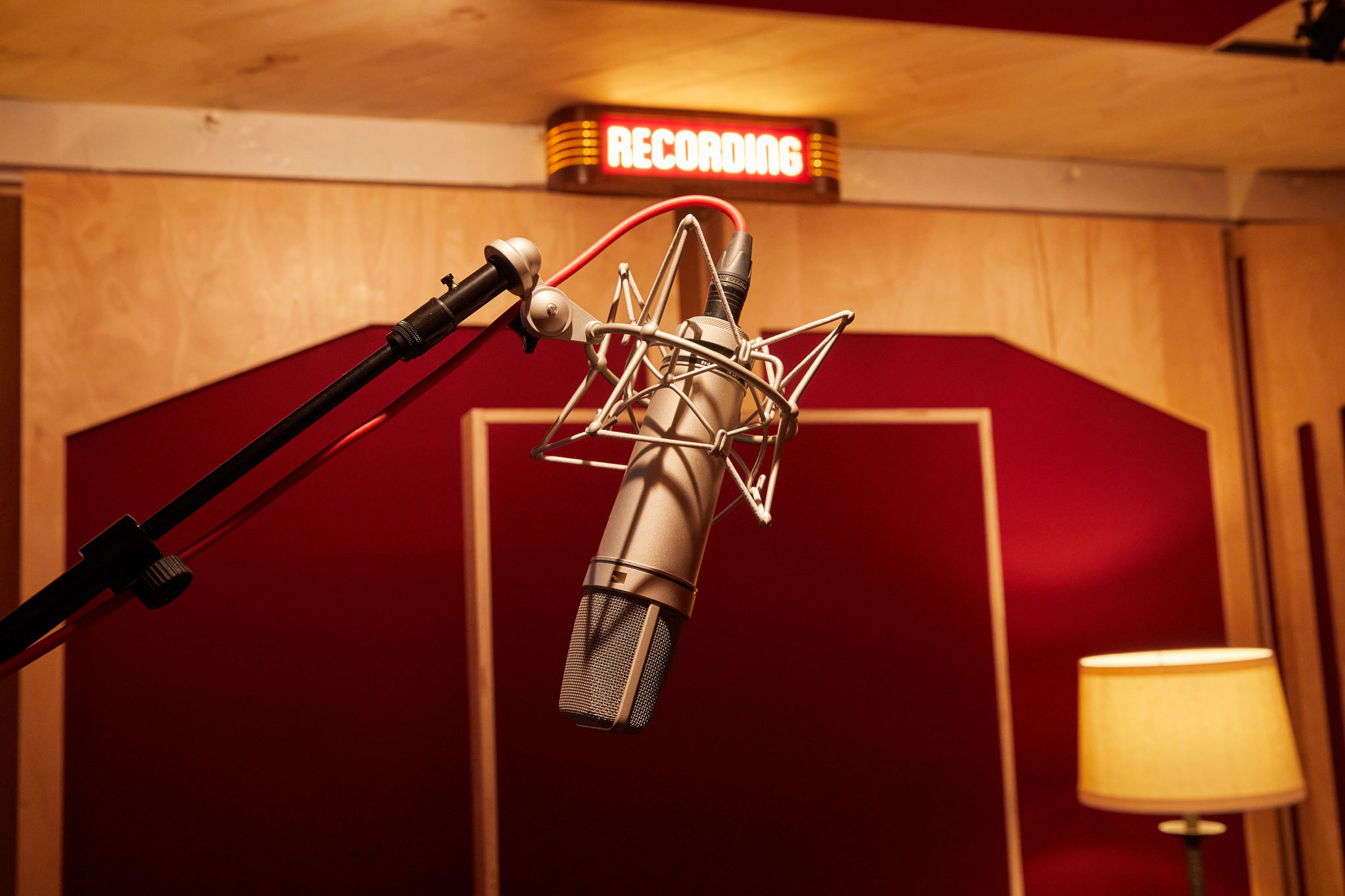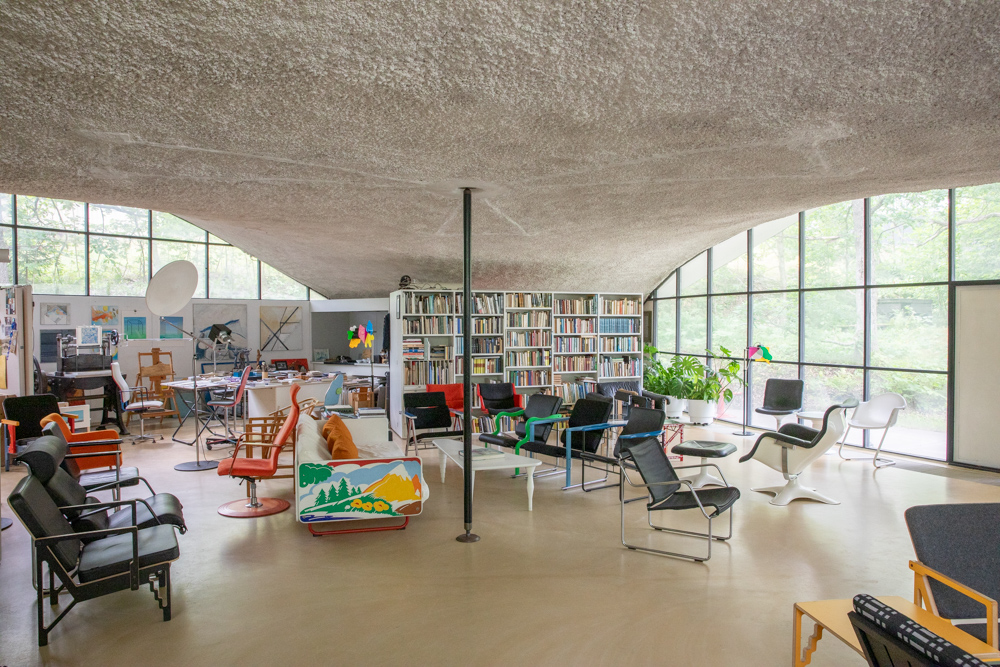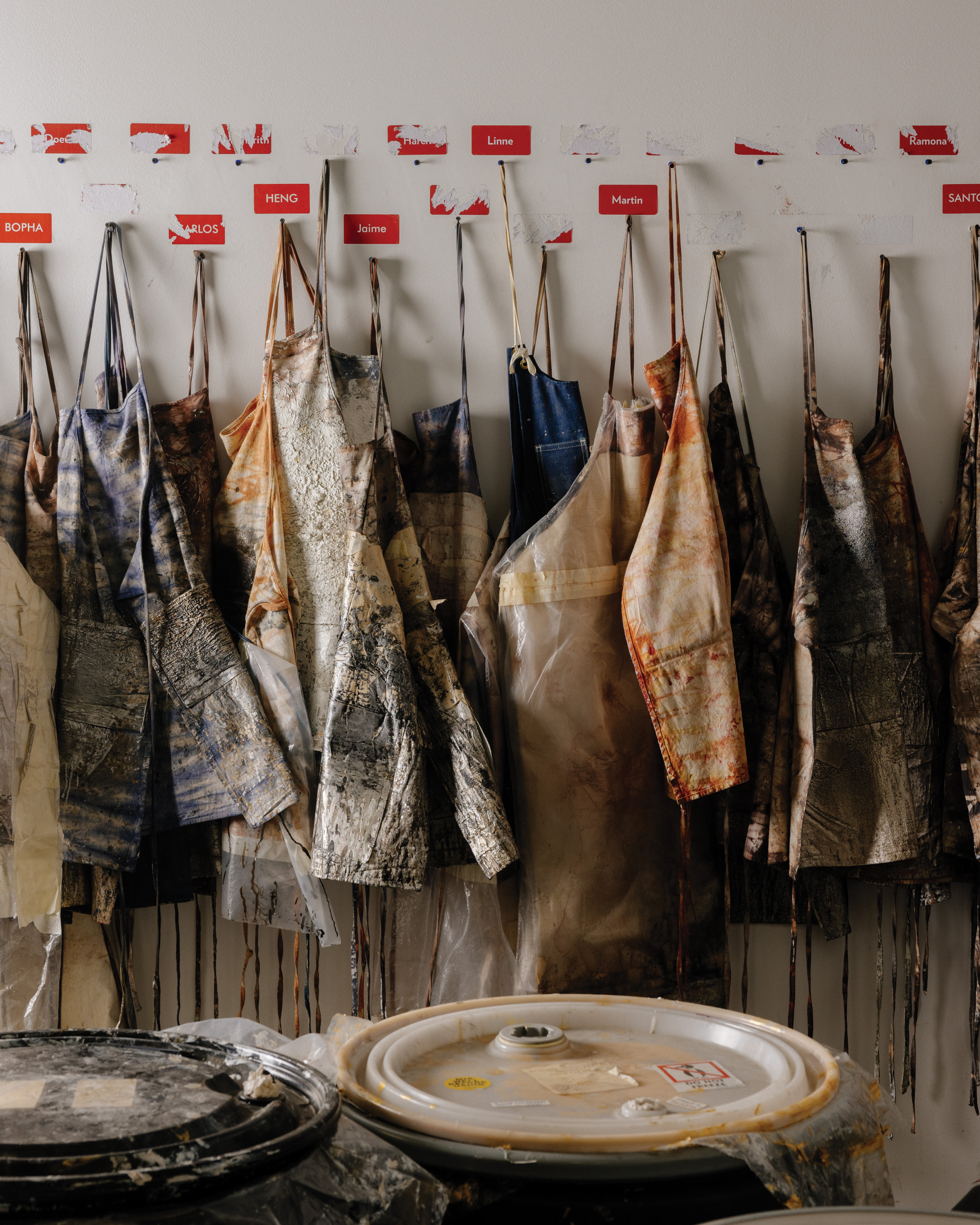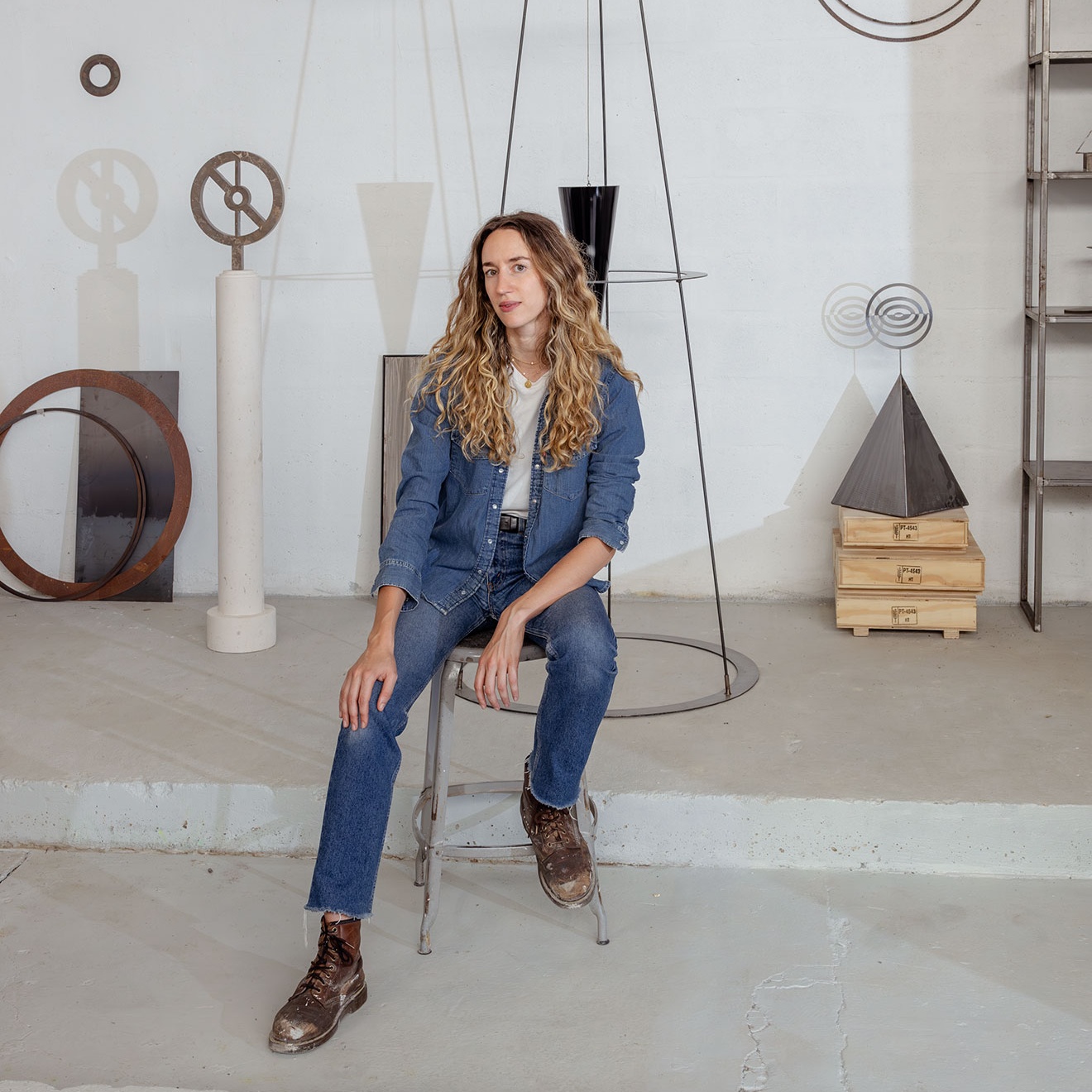“Behind the Mic” goes behind the scenes to photograph some of the most exciting podcast studios across the world, documenting the creative and production processes as well as the technology used to bring each episode to life.
In Los Angeles and New York, in the studio and in their homes, a team of writers, actors, producers, and sound designers spent much of 2020 making Sorry Charlie Miller—a laugh-out-loud fiction podcast from Audible that stars Zachary Quinto (Star Trek, Heroes), Michelle Buteau (The Circle), and others.
The brainchild of writers Tanner Cohen and David Ludwig with executive producers Will Malnati and Zachary Quinto, Sorry Charlie Miller is part of At Will Media—an award-winning full-service audio production company started by Will.
The show centers around the disappearance of a D-list reality TV star with a rabid fanbase and also features Gossip Girl’s Chace Crawford, The Office’s Brian Baumgartner, and Modern Family’s Jesse Tyler Ferguson, among other faces you’d likely recognize if it weren’t a podcast.
- Podcast “Sorry Charlie Miller” centers around the disappearance of a D-list reality TV star with a rabid fanbase and stars Zachary Quinto, Michelle Buteau, and many others. Photo by Ye Rin Mok
Will and his team were a little over two years into work, his new company At Will Media, doing a lot of work for hire production services for brands, when he discovered a podcast called Bubble—a scripted comedy series from Maximum Fun (makers of Judge John Hodgman, Adam Ruins Everything; and My Brother, My Brother, & Me, among many others). He’d never heard anything like it, and it inspired him. “It’s this very quick, witty, and funny scripted audio series that’s fictional, and it was a blast,” he says.
- The “Sorry Charlie Miller” team used a Neumann U 87 Ai in final production. Photo by Ye Rin Mok
- “Sorry Charlie Miller” was recorded in part at York Recording. Photo by Ye Rin Mok
Will started thinking about what else could be done in the podcast space. “I didn’t know that many comedic writers, but I did know Tanner, and I had read his books. His sensibility and dialogue from his books fits really well with that Bubble quick humor, so I called him one day.”
The conversation went something like: “Do you know what podcasts are?” “Yeah, like Serial?’” “Yeah, like Serial, but what if it was scripted with characters?”
Tanner agreed to think about what a series written for “just your ears” would look like, and the two regrouped many, many times later. “I somehow convinced him to spend some time on this without giving him any money because I didn’t have any,” Will laughs.
- “Sorry Charlie Miller” was taped in part at York Recording, an eclectic recording studio for podcasts and musicians alike. Photo by Ye Rin Mok
Sorry Charlie Miller was Tanner’s first foray into podcast writing. “The driving force behind it was to create a show that was based in character and point of view and voice,” Tanner says. “The audio space up until then, and still even now, is a bit of a wild, wild west as far as how people are telling stories. It’s an old-school form of storytelling, but it’s being revisited now with new technology and more interest from talent. It’s this return to the form, but the beginning of something new. That really excited me as a writer.”
Tanner and co-writer David worked to figure out the story as well as how to tell it for audio. “It was definitely an interesting process writing for an audio-only show and then developing what that audio world would be with the designers and the editors. It was something we had to keep malleable all the way through, and that was to its benefit.”
- “Sorry Charlie Miller” co-writer David Ludwig in York Recording studio. Photo by Ye Rin Mok
David agreed that while writing for audio comes with its own narrative challenges, it also allowed for serious creative freedom. “There was no set piece or action that felt out of bounds because we didn’t have to worry about the feasibility of staging a car chase or, spoiler alert, having a girl fall off a party boat in the middle of the Atlantic,” he says.
David says telling a story without visuals ended up informing a lot of the comedy in ways he didn’t expect. “There’s a scene where (main character) Mark can’t park his car and hearing that go on for so long and the constant attempts to fit into this parking spot was so much funnier to me than it would have been if we had seen it. We were also able to have wacky characters like the ghost of Mark’s dead uncle because we didn’t have to worry about what that would look like. We could just go for it.”
- Inside York Recording in Los Angeles. Photo by Ye Rin Mok
- Neumann’s studio condenser microphone allowed for the crew of “Sorry Charlie Miller” to isolate certain characters on the podcast. Photo by Ye Rin Mok
The actual writing began in the fall of 2019, but there were many iterations of Sorry Charlie Miller—with many different scripts written and thrown in the trash. Will says there can never be too many versions of a draft. “People say, ‘Oh, you don’t want to get into 25 versions of drafts.’ For us, we wanted it to be perfect. People shouldn’t be afraid of pushing through to make it as close to perfect as you can.”
When the team finally had something to show, something they all agreed on, Audible was onboard. The team was ecstatic. “Once we had that stamp of approval from Audible, who was really investing in that kind of content in a big way, it was like, ‘OK, wow. We do have something real here that’s interesting to more than just Tanner and I,’” Will says.
Both Will and Tanner are based in New York, but Will recalls traveling to York Recording studio in LA to make plans for production and walk through the space in January 2020. Once Covid hit, they considered pausing the project, but after discussing with the team, everyone wanted to make it happen. They wanted to give people something fun to work on, something exciting to listen to. Will and Tanner both ended up being in the studio via Zoom. Somehow, though, everything clicked. “It still felt like everyone was there in a way,” Will says.
- “Sorry Charlie Miller” is an Audible fiction comedy podcast from At Will Media. Photo by Ye Rin Mok
The podcast officially went into production in April 2020. Tanner says production was meant to be two weeks in the studio—one week in New York and one week in LA—but the pandemic changed all that. “With the help of the amazing production team at At Will we orchestrated at-home recording studios,” Tanner says. The process ended up taking more than two months, instead of two weeks, including just a bit of time at the end in physical studios, including York Recording.
Two dozen actors ultimately recorded from home studios and setups in New York and San Diego in addition to LA. They did their own sound checks, set up their own equipment. They figured things out. Will gives the cast credit for their willingness to roll up their sleeves, at least until they were able to get into a professional studio.
Another saving grace was that the team was able to utilize a Neumann U 87 Ai in final production—what Will calls an amazing piece of technology. “We knew we wanted a couple elements of the recording that were cleaner than everything else,” he says. “Those were for the internal moments when our main character, Mark, is talking to himself, or when this other main character, the voice of the ghost of his uncle, gives him advice along the way. Those are two elements happening that are out of this world, and for us it was really important that those sounded different, that those sounded as clean as possible. For that we used the Neumann.”
- “One of the most amazing things about ‘Sorry Charlie Miller’ is the fact that it was recorded, mixed, and produced during lockdown. Will (Malnati), Tanner (Cohen), and the entire At Will production team (not to mention the actors) took on an almost impossible task and knocked it out of the park,” says co-writer David Ludwig. Photo by Ye Rin Mok
In a perfect, non-pandemic world, he guesses they would have used premium quality Neumann microphones for everything, rather than the hodgepodge of mics and studio setups they ultimately had to make work. “It was like an engineer’s nightmare in a way—a lot of different tonality and a lot of different types of mics. So we tried to use all the same type of equipment throughout to really help set the tone and the consistency. From there we used Neumann to help make those internal voices feel like they were set on their own.”
- Neumann’s studio condenser microphone in action. Photo by Ye Rin Mok
When all was said and done, a team of approximately 25 people played something like 100 characters in Sorry Charlie Miller, Tanner says. He also worked with a few editors on a daily basis, and a sound design firm, who he calls “world builders,” made up of five or 10 people.
“I loved being able to work on something collaborative and creative in 2020. That was probably the greatest gift of all,” Tanner says. Now the team is in the midst of conversations about a TV adaptation of Sorry Charlie Miller, and Will says the podcast itself is “very much set up for a season two,” though nothing official has been announced as of spring 2021.
“Listening to this show and investing time in it is a really rewarding escape. It challenges the listener to receive a story in a new way,” Tanner says. “I think most of us don’t have scripted narrative podcasts at the top of our lists of ways we want to unwind in the way we watch a junk TV show or whatever, but getting into this show, and other shows that are in this world as well, it’s such a fun way to escape.”
